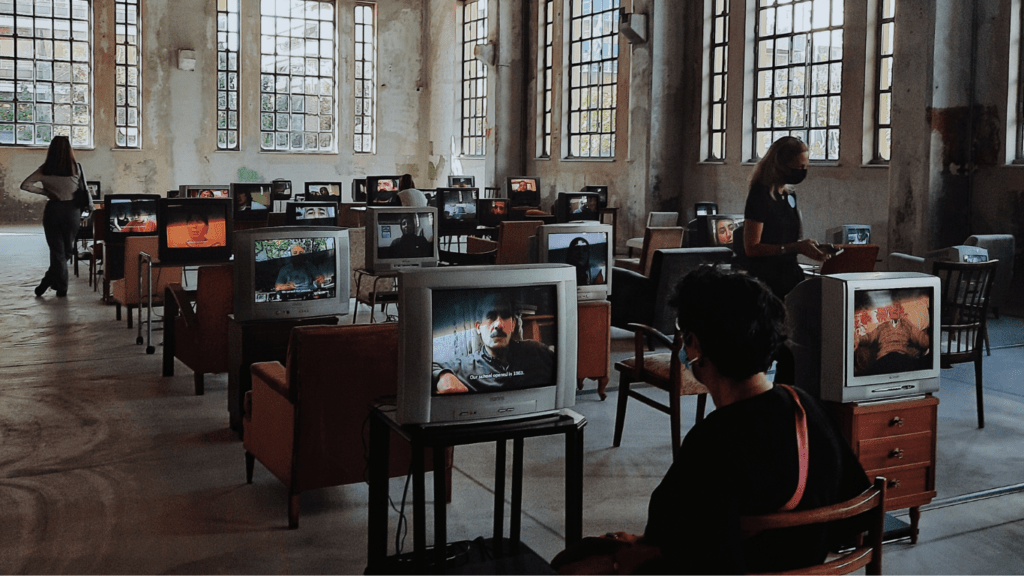Evolution of Entertainment Platforms
From Traditional to Digital Media
Entertainment platforms have evolved significantly, transitioning from analog formats to digital mediums.
In the past, television and radio dominated, providing scheduled programming that limited viewer control. Consumers had to tune in at specific times to catch their favorite shows and films.
With the advent of digital technology, viewers gained more control over their content consumption.
DVDs and Blu-rays allowed for on-demand viewing, while digital downloads and online rentals further enhanced accessibility.
In the digital age, media consumption shifted towards more flexible and personalized experiences.
Platforms like YouTube and Facebook revolutionized content distribution by enabling user-created videos and instant sharing. Consumers could watch videos anytime, anywhere, without restrictions.
The proliferation of smartphones and high-speed internet accelerated this shift, as mobile devices became primary tools for content access.
The Rise of Streaming Services
Streaming services have transformed how audiences consume entertainment. Companies like:
- Netflix
- Hulu
- Amazon Prime
Video offer vast libraries of movies, TV shows, and exclusive content for a subscription fee.
Unlike traditional TV, these platforms allow binge-watching and reduce reliance on advertisements. Weekly episodes, a norm for TV, gave way to entire seasons released simultaneously.
Additionally, streaming services invest in original programming, attracting subscribers with unique content unavailable elsewhere.
This strategy has driven significant growth. For instance, Netflix had over 200 million subscribers by 2021, reflecting the massive audience shift towards online streaming.
The integration of advanced algorithms also helps recommend personalized content based on user preferences, enhancing the viewer experience.
The entry of new players like Disney+ and HBO Max indicates the growing competition in the streaming market.
These platforms focus on exclusive franchises and extensive back catalogs, differentiating their offerings from competitors.
The rise of streaming services underscores the declining relevance of cable TV, as more users cut the cord in favor of more flexible and consumer-friendly options.
Impact of Technology on Entertainment
Virtual Reality and Augmented Reality
Virtual reality (VR) and augmented reality (AR) technologies have dramatically transformed the entertainment industry.
VR offers immersive experiences by simulating real or imaginary environments such as:
- Enhancing video games
- Films
- Virtual tours
Popular VR headsets include Oculus Rift and HTC Vive, which provide users with high-resolution displays and motion tracking.
AR overlays digital content onto the real world, making interactive experiences more engaging.
Applications of AR range from smartphone games like Pokémon Go to sophisticated AR glasses like Microsoft’s HoloLens.
Entertainment companies now integrate AR into marketing campaigns and theme park attractions, creating interactive and personalized experiences for audiences.
Artificial Intelligence in Movie Production
Artificial intelligence (AI) has significantly impacted movie production, optimizing various processes from scriptwriting to post-production.
AI algorithms analyze vast amounts of data to predict box office success and audience preferences.
For instance, ScriptBook provides predictive analytics for screenplays, helping studios make data-driven decisions.
In post-production, AI enhances visual effects, automates editing, and improves CGI, reducing costs and time.
Companies such as Adobe and Avid use AI tools to streamline editing workflows.
AI also personalizes marketing campaigns, targeting advertisements to specific demographics, thus increasing engagement and box office revenue.
Influence of Social Media

Marketing and Promotion Strategies
Social media has transformed marketing and promotion strategies in the entertainment industry. Platforms like:
Enable direct communication with audiences. For instance, movie studios use these networks for promotional campaigns, sharing trailers, posters, and behind-the-scenes content.
This boosts visibility and creates buzz before releases. Celebrities also use social media for personal branding and promoting projects.
- Influencers play a pivotal role, as their endorsements significantly impact consumer behavior.
- Studios collaborate with influencers to reach niche markets, leveraging their loyal followings.
- Influencers can generate organic content that feels authentic, enhancing promotional efforts.
Audience Engagement and Feedback
Social media facilitates instant audience engagement and feedback. Platforms provide tools for real-time interactions, such as live streams and Q&A sessions.
For example, Instagram Live and Twitter Spaces allow celebrities and creators to connect directly with fans, fostering a sense of community and loyalty.
User-generated content on social media offers valuable insights into audience preferences and reactions. Studios monitor comments, likes, and shares to gauge public sentiment.
This feedback informs marketing strategies and content creation, ensuring alignment with audience expectations.
Social media’s impact on marketing strategies and audience engagement in the entertainment industry is profound.
It offers direct communication channels, enhances promotional efforts, and provides real-time feedback, driving continual evolution in how entertainment is marketed and consumed.
Sustainable Practices in Entertainment
Green Filmmaking Initiatives
Productions in the film industry are increasingly adopting green practices.
According to the PGA Green report, films that implement sustainable methods see reductions in energy consumption by up to 70%.
For instance, studios use solar power sources, LED lighting systems, and hybrid or electric vehicles to decrease carbon emissions.
Recycling habits on set have significantly improved, with waste diversion rates often exceeding 80%.
Some filmmakers choose digital over physical formats to minimize paper waste, further contributing to eco-friendly productions.
Eco-friendly Venue Management
Live entertainment venues have begun prioritizing sustainable management. Green Venue Reports indicate that sustainability efforts in venues can reduce operational costs by up to 20%.
Many venues now integrate renewable energy systems, like solar panels, to power events. Efficient waste management solutions, including composting and extensive recycling programs, are standard practices.
Water-saving fixtures and energy-efficient HVAC systems help lower resource consumption.
Venues also collaborate with local suppliers to source sustainable materials and caterers, which reduces the environmental impact and supports local economies.


 Alpha Ricketts - Senior Analyst Alpha Ricketts serves as Senior Analyst at Jackpot Journey Spot, bringing valuable insights into market trends and game strategies. With a background in data analysis and a passion for understanding the nuances of gaming behavior, Alpha helps shape the site’s focus on responsible gaming by providing data-driven insights that keep readers ahead of the curve.
Alpha Ricketts - Senior Analyst Alpha Ricketts serves as Senior Analyst at Jackpot Journey Spot, bringing valuable insights into market trends and game strategies. With a background in data analysis and a passion for understanding the nuances of gaming behavior, Alpha helps shape the site’s focus on responsible gaming by providing data-driven insights that keep readers ahead of the curve.
